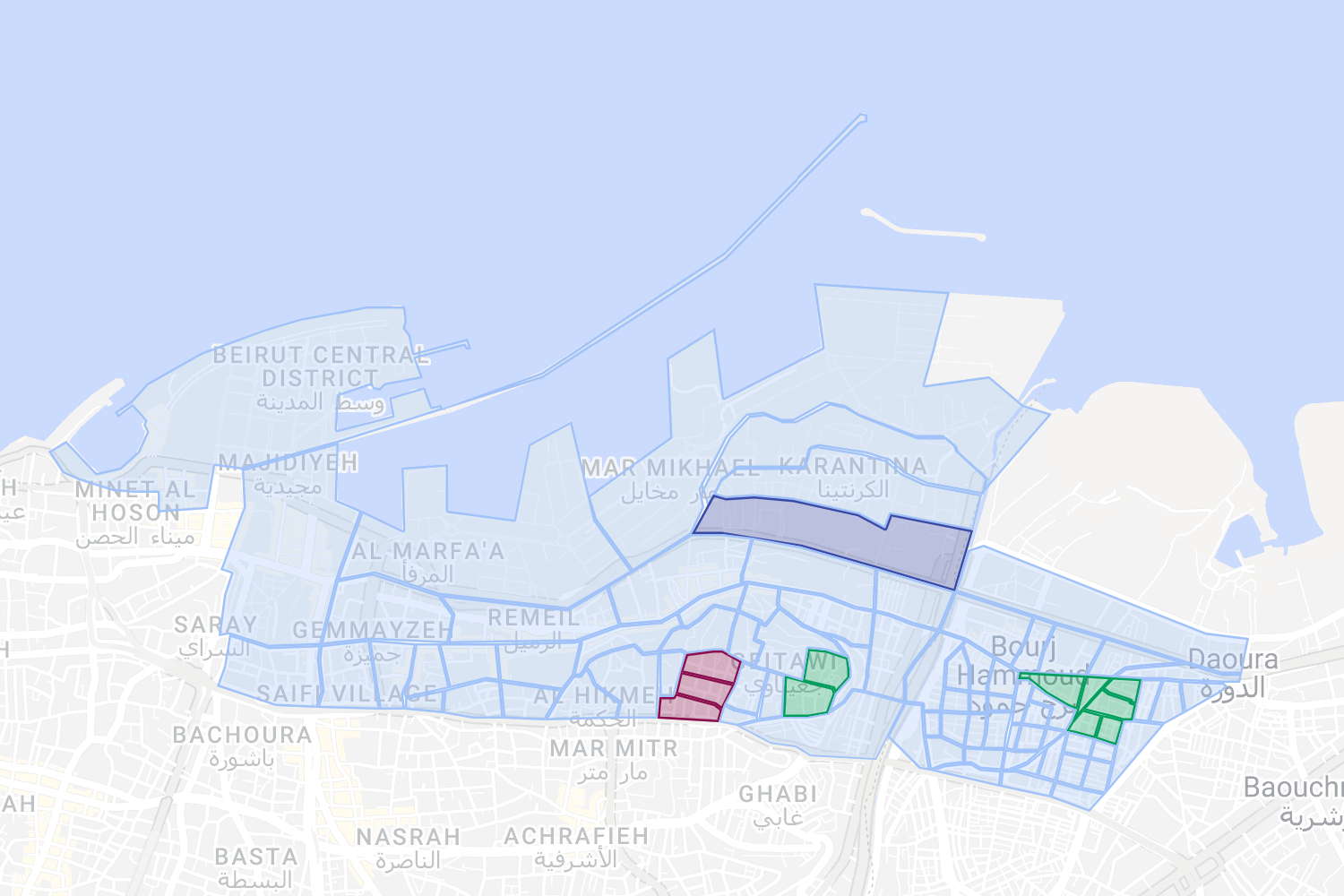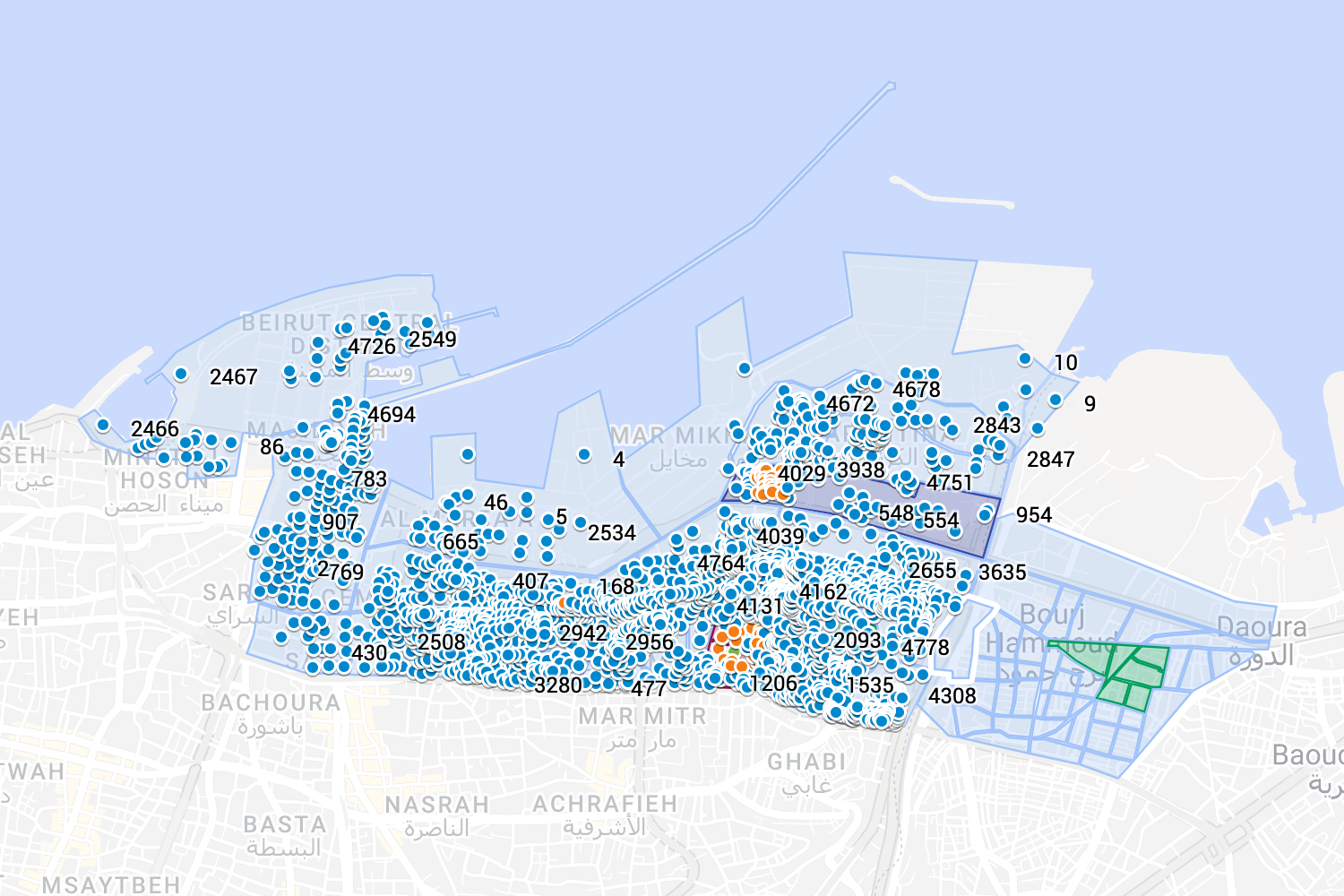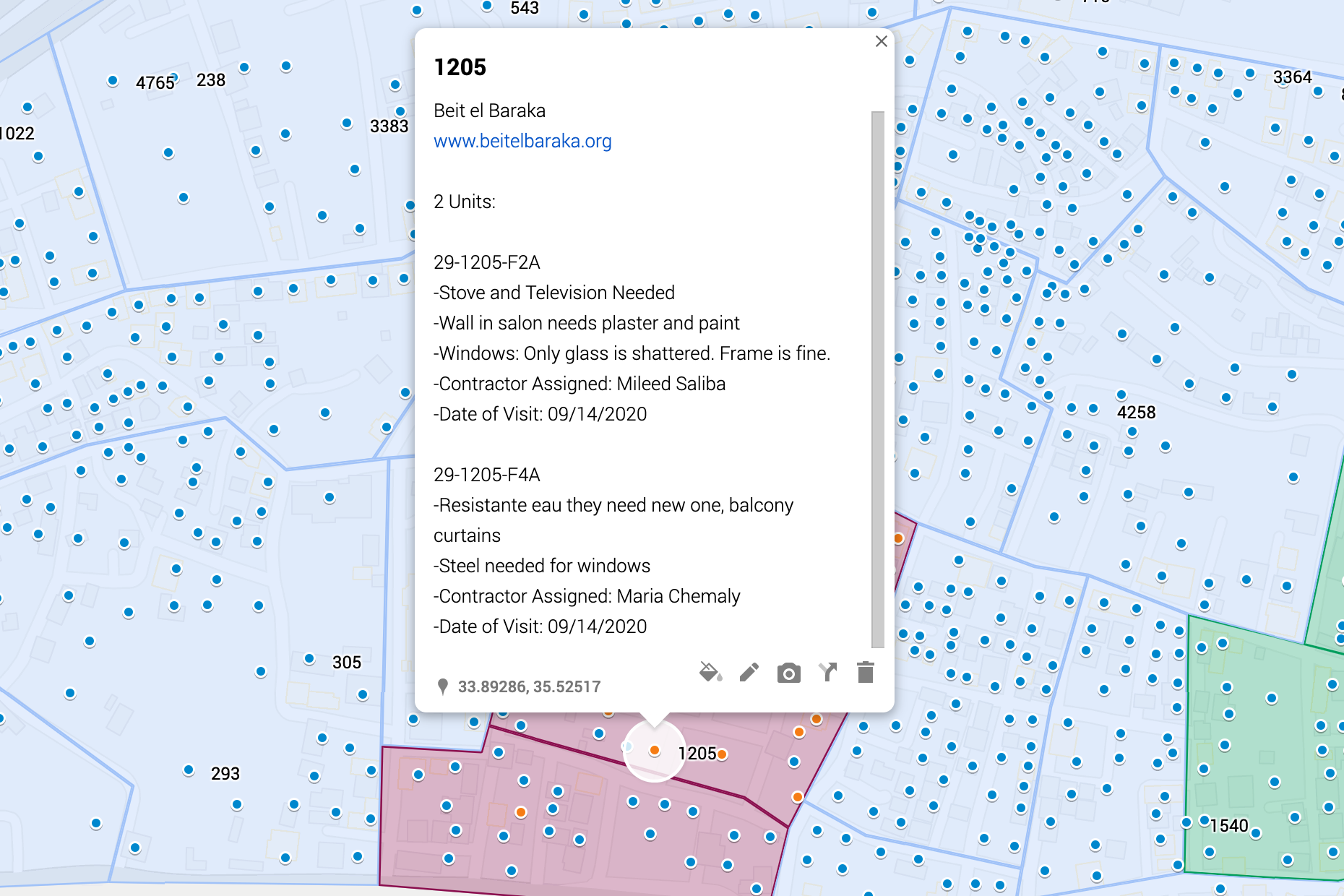Founder @ Beirut Project
August 2020 - April 2022-
The Beirut Project is a non-profit co-founded by 3 Lebanese-American friends following the August 4, 2020 port explosion in Beirut. The initiative started as a fundraising effort to support reconstruction and rehabilitation projects on the ground. Over $250,000 was raised in the first 10 days.
Since then, The Beirut Project has focused on numerous other projects that aim to help female entrepreneurs, small businesses, agricultural producers, and others.
-
As Co-Founder of The Beirut Project, I was responsible for developing and growing the organization. This included but was not limited to the following:
› Creating a website and GoFundMe page within the first 12 hours
› Developing a grassroots fundraising campaign by leveraging my network
› Working hand-in-hand with other NGOs and governmental organizations
› Mapping all of Beirut to be used for project tracking initiatives
› Coordinating with SEAL to determine where funds should be allocated
› Highlighting and supporting small businesses in affected areas
› Purchasing inventory from local producers for shop owners around Beirut
Fundraising
On August 4, 2020, Beirut suffered the sixth largest non-nuclear explosion in recorded history. The damage was extensive, killing more than 200 people, injuring more than 7000, and rendering more than 300,000 people homeless. Most of the city was destroyed in a matter of seconds, resulting in damages of over $15 billion. Given the country’s deepening economic crisis and the Lebanese government’s vast ineptitude, there was a philanthropic gap that quickly needed to be filled. Within the first few hectic hours of the explosion, amidst constant phone calls to friends and family on the ground, I mobilized two of my closest Lebanese-American friends in the Bay Area to work on a fundraising initiative. The goal was to generate as many grassroots donations as possible and to subsequently funnel the funds to reconstruction and rehabilitation projects. The destruction was extensive and time was of the essence.
Website & GoFundMe
After the madness of the first day, I realized that the best next steps to raise funds would be to create a website, GoFundMe, and social media presence. This would allow individuals to learn more about the project and progressively track the allocation of funds. The website gave details on the initiative and linked directly to our GoFundMe, for which we ultimately partnered with SEAL (Social and Economic Action for Lebanon). With help from other Lebanese-American friends, we established an informative social media strategy which provided followers with digestible statistics about the damage and worsening economic crisis.
Donation Matching
In order to incentivize individuals to donate to the cause, and to demonstrate our commitment to helping Lebanon, we determined that the best way to fundraise would be to match donations up to a certain amount. As a result, we reached out to hundreds of Lebanese-American friends in our network and asked them if they were willing to match donations. The positive response was overwhelming, and we were ultimately able to match over $100,000 in external donations through our network.
Fundraising
Once we had established a group of ‘pledgers’ who were willing to match donations, the next step was to conduct extensive outreach in order to raise as much money as possible. Each individual pledger fundraised independently, leveraging independent contacts and matching funds in return. Through countless phone calls, text messages, and social media posts, we were able to raise over $250,000 in donations within the first 10 days of the campaign. Most of this money came in small amounts, and demonstrated people’s generosity and graciousness during what proved to be a very hard time for the Lebanese community.
Allocation
After reaching our initial fundraising goal, albeit with more funds trickling in on a daily basis, our next task was determining how we wanted to allocate our funds. Working directly with SEAL, we focused on spending the initial batch on urgent reconstruction and rehabilitation projects. One area of priority was rebuilding many of the hospitals that were destroyed in the area. Funds were quickly allocated to start rebuilding the Saint George Hospital in Rmeil, which was severely impacted by the blast. Other funds were allocated in coordination with the Red Cross and other groups to alleviate urgent food security needs on the ground. Ultimately, in addition to the $250,000 raised, I worked in tandem with SEAL over course of the next 6 months to help allocate over $15 million in funds to entities in need.
Beirut Mapping
In order for reconstruction to take place, NGOs needed to establish a system to track affected buildings around Beirut. We quickly realized that no digital layout of the city existed and that we had to build one ourselves. I spent one week coordinating with different NGOs, government organizations, and the Lebanese Army in order to consolidate as many existing maps as possible. These were often physical documents that needed to be scanned or an array of overlapping pdf files that had to be organized. I held multiple conversations with experts, city planners, and local university professors to understand the correct layout and accurately process the data.
Map Structure
The mapping needed to be incredibly granular in order for the army to allocate projects to different NGOs. The first layer was breaking down Beirut into numerous zones. Each zone would ultimately be managed by a different NGO. The second layer was identifying the buildings in each zone. This also meant specifying whether the building was a school, apartment building, commercial site, etc. The third layer involved describing the characteristics of each building. This included whether the building was a heritage site, new or old, number of stories, number of elevators, last stress test assessment, etc. Once the preliminary work was done, we then had to describe the damage incurred by each building and each individual unit. For example, in the same building, Unit #101 could have experienced broken windows and a broken fridge while Unit #415 could have experienced a collapsed archway, a broken AC unit, and a damaged balcony. This early identification work allowed NGOs to segment projects and effectively track progress.
Final Product
Small Business Initiative
The initial reconstruction phase helped restore much of Beirut’s facade, yet deep-rooted societal problems still lingered. One such problem happened to affect shop owners around town. Beirut is famous for its ‘dikenes’, or small corner stores, which litter much of the city. They can be found on most street corners and provide the daily staples and household products needed by most Lebanese. As we approached 2021 and Lebanon’s economic situation worsened, many of these shop owners could no longer afford the inventory to keep their shops afloat. Across Beirut, shelves started to empty and many of these small generational dikenes began to shutter. Many NGOs had pledged to fix the physical damage incurred by these shops while neglecting to help support the core structure of their businesses.
Finding Shops
We were able to generate an extensive list of small businesses in need by leveraging our extensive network in Beirut. This was accomplished multiple ways: Firstly, individuals volunteered to scour affected neighborhoods and talk to shop owners. Secondly, other NGOs on the ground shared their databases and put us in contact with businesses in need. Thirdly, as a result of our previous work and word of mouth, many businesses reached out via Email, WhatsApp, and Instagram in order to ask for assistance. Once business names were acquired, I would reach out and interview them in order to ascertain company backstory, location, extent of damage, inventory needs, previous funding.
Donating Inventory
I worked directly with SEAL in order to pinpoint local agricultural producers whose products could help serve as a stopgap for small shops around Beirut. Extensive research was required to determine which products were most needed and readily available for sale. After speaking to the Chair of the Department of Ecosystem Management at the American University of Beirut, in addition to SEAL’s Head of Projects, we were able to put together a list of products that we could feasibly supply to small shops around Beirut. The final list included items such as honey, tomato paste, white beans, bulgur wheat, zaatar, hummus, olive oil, jam, & soap. This varied mix provided the necessary blend of expensive products with high margins and cheaper high-calorie products that could sustain local nutritional needs. Final items came from a combination of producers across Lebanon and were delivered directly to shops in Beirut.
Sustainable Ecosystem
Although initially structured as a temporary solution, the hope was that these small shops would eventually start purchasing directly from local producers in order to fill their inventory needs rather than relying on foreign products. As Lebanon’s economy became increasingly dollarized, many of these small shops were able to acquire the necessary working capital to continue ordering from local producers, thus creating a localized ecosystem that promoted domestic growth.



